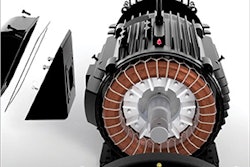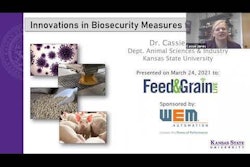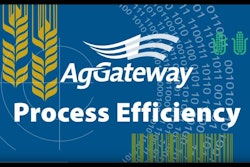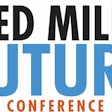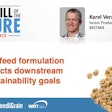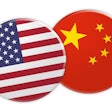Transcript:
Feed & Grain:
Can you tell us a little more about yourself and your role with the AFIA?
Gina Tumbarello00:08
Sure, I am the Senior Director of International Policy and Trade at the American Feed Industry Association. So essentially, I work on behalf of the US animal food industry to make sure that their current market access continues, as well as to help open up new markets. I do this by supporting and promoting the US industries’ positions before US and foreign regulatory and policy agencies, as well as international standard-setting bodies.
F&G:
So, a new congress has just been sworn in. How can we expect this to change U.S. Trade policy?
Tumbarello:00:42
Is the first time the administration is facing a chamber of Congress that's controlled by its opposition. So, it's definitely expected to look a little different this year, or at least hearing different initiatives coming out that maybe have been suppressed in the previous years. What we might see is a greater push from Congress on how to strengthen U.S. and global trade roles. Really quick, here are two examples.
Tumbarello:01:12
Right now, we don't have a trade promotion authority that expired in 2021. But in a Republican-led House, Republicans are likely to continue to push for a new trade promotion authority, which would allow the President to negotiate trade deals based on congressional activities. And up to this point, our negotiators haven't been able to do that. They don't have the authority because the TPAs expired.
Tumbarello:01:43
另一个例子是与共和党控制the house. It's also a great opportunity for the House and Senate to agree on a bill that would renew the generalized system of preferences and include a new miscellaneous tariff Bill, both expired in 2020. The general system preferences promote economic development, and it does that by eliminating duties on 1000s of products that we import from a designated number of countries. And then the miscellaneous tariff bill allows a temporary reduction in the suspension of duties as well on key imports that we have. So, making products cheaper for us consumers, because some of those inputs we have to import and getting those bills renewed would allow us to do that.
F&G:
Are there any exciting trade opportunities out there that AFIA has its eye on?
Tumbarello:02:40
I am really excited about Vietnam as a key opportunity for both U.S. feed additives and pet food. A lot of the low-cost feed ingredient sources in Vietnam are becoming more expensive and limited due to inflation and the continued supply chain challenges. It's a prime opportunity for us to demonstrate the value of U.S. feed technologies. They’re looking for options to reduce their fee costs and improve feed conversion rates. So hopefully, this will expand our opportunity to provide more and a variety of different U.S. feed products to Vietnam.
Tumbarello:03:20
然后最重要的是,宠物的人口增长n is compounded by growing interest in the desire to feed their pets more balanced and nutritious meals. That is a great opportunity for us on the pet food side because it's getting in on the ground floor before the market gets flooded with hundreds of global options. Right now, the variety is very slim, so it's a great opportunity for us to get in there early.
F&G:
In the last few years, international trade has felt the challenges of the Covid-19 pandemic. What challenges will there be in 2023?
Tumbarello:03:52
I definitely still see continued supply chain and transportation challenges, especially coupled with inflation. So, this will continue to put U.S. exports at a disadvantage, especially when we take into account those export markets where we do not have a trade agreement and our competitors are enjoying zero tariff mark access. So that's why it's so important for the U.S. to go back to negotiating trade agreements, renew the Trade Promotion Authority, and get those trade agreements that have tariff reductions and market access so that when these types of challenges hit us, the supply chain transportation inflation, we don't have this additional burden of having to compete against our competitors with higher tariff rates.
F&G:
What are you excited about for IPPE 2023? Are you speaking anywhere at the event?
Tumbarello:04:41
So, I'm super excited about this Expo. I think it's going to look a lot like, if not bigger than, pre-COVID Expos, so I think we're going to see a lot of great energy this year and excitement to back to normal. I will be speaking I'll be speaking at the Tech Talk on Tuesday. And then, we'll be specifically on my thoughts about the administration's trade agenda for 2023 and what we might expect to do.
In the newest addition of the series, "5 Minutes With AFIA,"Gina Tumbarello, senior director of International Policy & Trade for theAmerican Feed Industry Association (AFIA), talks with Feed & Grain about trade and its effect on the U.S. animal feed and pet food industriescompared to 2022.
Topics include:
- How the newly sworn-in congress may affect how the U.S. is able to handle trade.
- Trade opportunities for the animal feed industry.
- International trade challenges
- IPPE 2023





